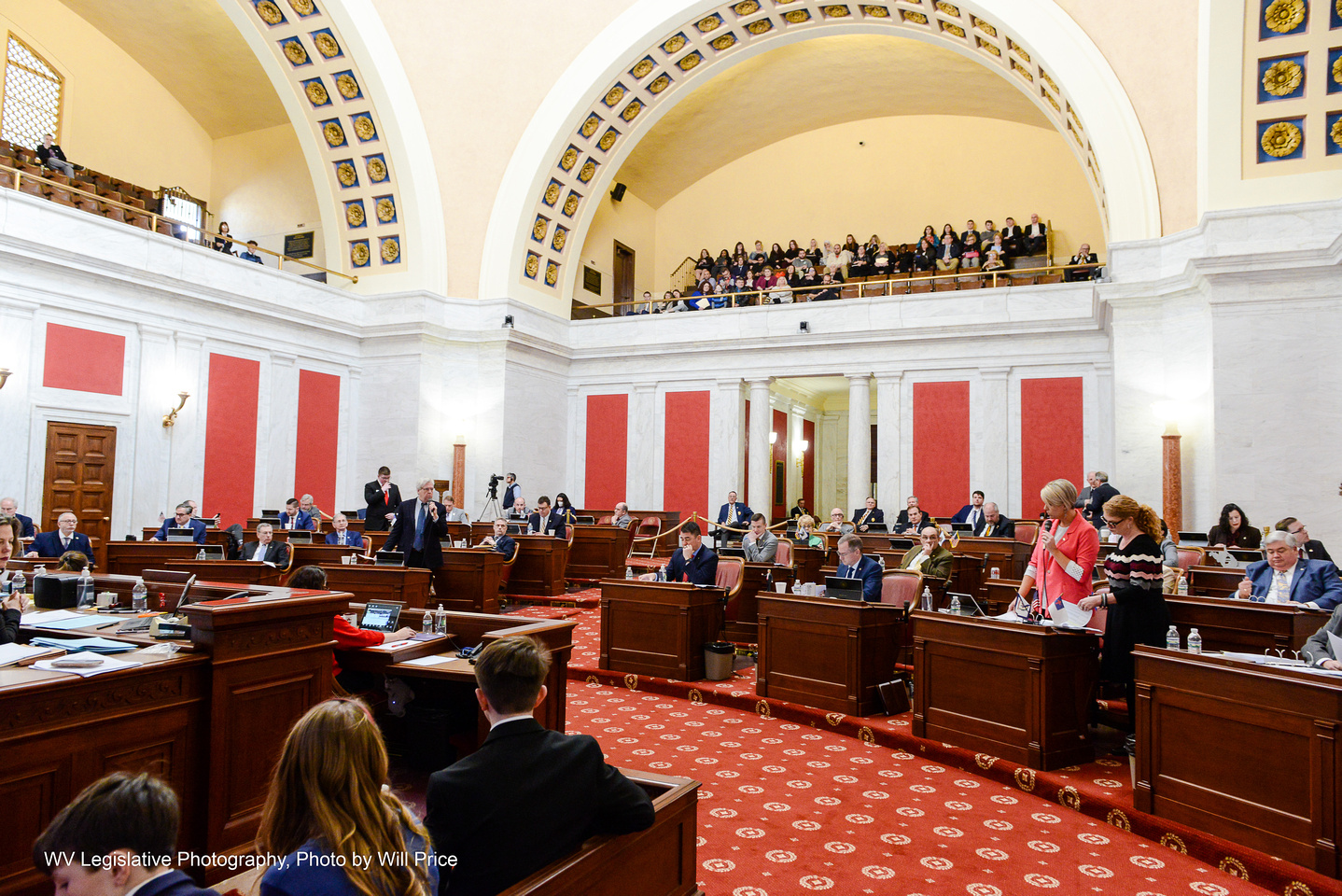The Senate passed 20 bills Monday on a variety of issues ranging from alcohol consumption to high school sports.
Senate Judiciary Chair Sen. Charles Trump, R-Morgan, said on the floor that Senate Bill 534 was intended as technical cleanup for a bill the Senate passed last year relating to beer, cider, wine, and liquor license requirements.
After changes in committee, and the addition of three floor amendments, the bill would expand how and where alcoholic beverages can be sold and enjoyed responsibly.
“It authorizes municipalities to establish private outdoor designated areas that are zoned for alcohol consumption in that area for alcohol drinks sold for by qualified permit holders, who are class A licensees,” Trump said. “The bill allows a product I’ve not heard of before, but I’m eager to learn about beer slushies. Maybe members of this body are familiar with the product? I don’t know. But the bill will permit that. It would be currently unpermitted under our present law.”
Trump stated that the changes would serve to promote tourism in the state. The bill had its detractors, but ultimately passed on a vote of 25 to 8.
Senate Bill 667 would require periodic performance audits by the legislative auditor of the West Virginia Secondary Schools Activities Commission, the main governing body of high school sports, cheerleading, and marching bands in the state.
There was a brief debate over the legality of such a bill.
Sen. Mike Woelfel, D-Cabell, stood to oppose the bill and raised concerns that the proposed oversight would not stand up to legal scrutiny.
“The Supreme Court of Appeals held that the WVSSAC is not a state agency. In fact, they went on to say it’s not even what’s called in the law public body,” Woelfel said. “So respectfully, I believe it’s an unconstitutional attempt by us to have an audit of an autonomous group. And that’s what the Supreme Court of West Virginia described the SSAC as.”
Sen. Ryan Weld, R-Brooke, one of the bill’s co-sponsors, spoke in favor.
“What I think we’re trying to get here, with this piece of legislation, Mr. President, is a look under the hood of the agency that is responsible for all the activities in the state that our kids who attend high school partake in, any sports, whether they’re in the band,” he said. “An organization that has millions in assets.”
Senate Bill 737 was the second bill introduced Monday to deal with compensation for Emergency Medical Service workers.
Senate Finance Chair Sen. Eric Tarr, R-Putnam, said the bill would create a special revenue account, the Emergency Medical Services Salary Enhancement Fund, to supplement the salaries of EMS workers across the state.
“The rules are to provide a mechanism for distribution of the funds to the county with the parameters of distribution to counties demonstrating the most need, counties who have a special levy, counties who have reached the maximum rate on a regular Levy and counties that suffer from competition from border states,” he said.
According to a state coalition of Emergency Medical Service workers that presented earlier in the legislative session, the state has lost 1900 EMTs over the past three years.
All three bills, along with 13 others, now go to the House of Delegates for its consideration.
Nearing Completion
The Senate also took up four bills originating in the House.
House Bill 2062 completed legislative action. If signed by Gov. Jim Justice, the bill would modify e-bike regulations to more closely conform to federal law and allow certain e-bikes to be operated on public lands. The bill also states that users of e-bikes would have the same rights and privileges as regular bicycles.
House Bill 3340, which modifies the state’s Tax Increment Financing system, also completed legislative action and is awaiting the governor’s signature.
The other two bills were amended on the Senate floor and will complete legislative action if the House concurs on the Senate’s amendments.
House Bill 3307 would establish the West Virginia-Ireland Trade Commission, and House Bill 3428 transitions the West Virginia Business Ready Sites Program from a pilot to a permanent status.
